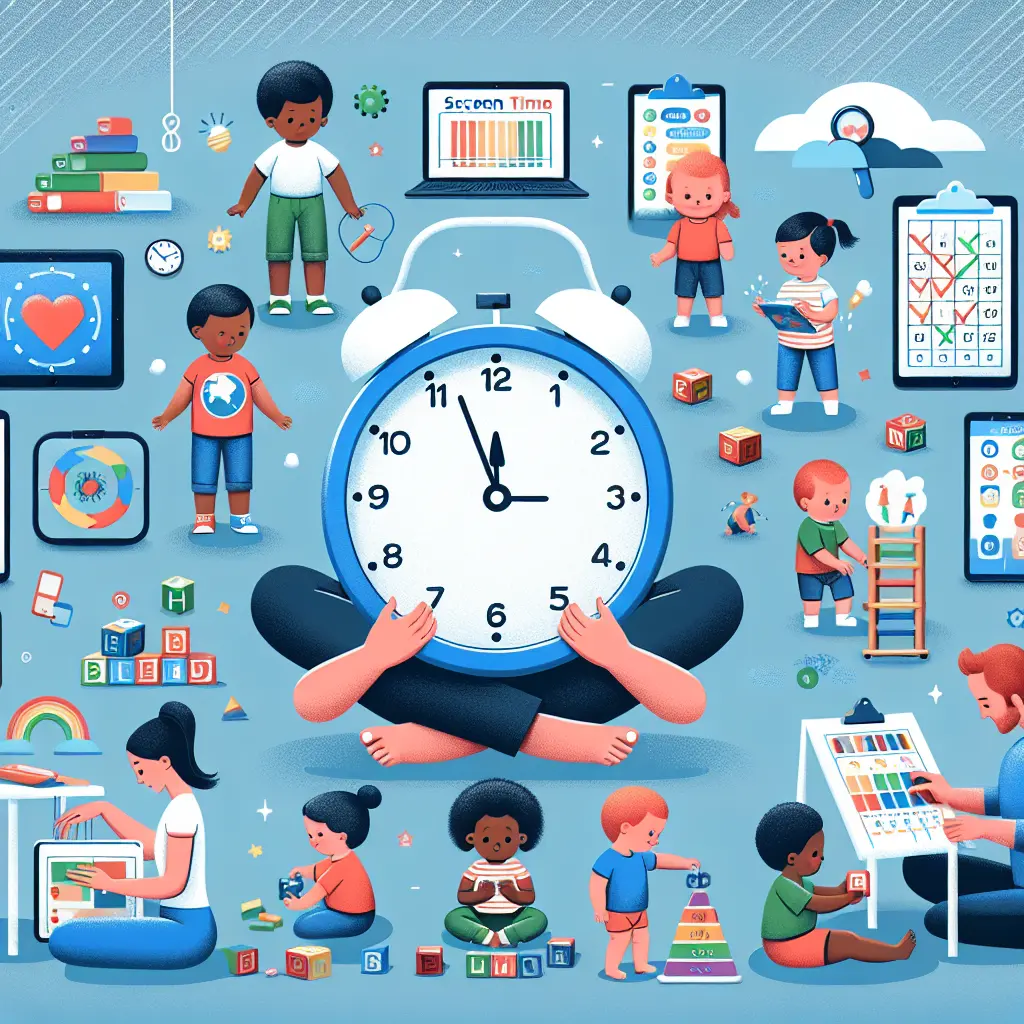
In today's digital age, managing screen time for children is more than just a parental duty; it's a necessity to ensure the healthy development of our young ones. The debate on how much screen exposure is appropriate for children continues to evolve, with recent discussions often emphasizing the need for balanced and controlled digital experiences. This blog will delve into effective strategies for managing screen time in young children, integrating expert opinions, recent findings, and practical tips.
Understanding the Importance of Screen Time Management
Excessive screen time can impact young children in multiple ways, influencing their cognitive, social, and physical development. Studies have shown that setting screen time limits and fostering healthy screen time habits can significantly benefit children's overall well-being. The American Academy of Pediatrics suggests tailored guidelines that parents can adapt based on their child's age and individual needs, underscoring the importance of moderating digital parenting (source: American Academy of Pediatrics).
Establishing Screen Time Guidelines for Kids
Creating clear and consistent screen time rules is crucial. Guidelines should be age-appropriate and consider the child’s developmental stage. For toddlers and preschoolers, experts recommend no more than one hour of high-quality educational content per day. As children grow, these guidelines can be adjusted, always prioritizing activities that promote learning and development.
Incorporating Effective Screen Time Strategies
One effective strategy is to involve children in setting their own screen time limits. This not only empowers them but also makes them more likely to adhere to these limits. Moreover, using tools like parental control apps can help parents monitor and manage the content and amount of screen time their children are exposed to.
The Role of Parental Control Apps
Parental control apps are invaluable in the digital age, allowing parents to filter harmful content, set time limits, and monitor usage. Apps such as "Circle" or "Qustodio" offer features that help customize settings for each child, ensuring they get the most out of their screen time without overindulgence (source: PCMag).
Reducing Screen Time in Kids
Reducing screen time doesn’t have to be a battle. Strategies such as creating "screen-free" zones at home or designating certain times of the day as screen-free can significantly help in reducing overall screen exposure. Encouraging alternative activities like outdoor play, reading, or family game nights can effectively divert attention from screens.
Developing Healthy Screen Time Habits
Developing healthy habits early on can influence a child’s relationship with digital media throughout their life. Encourage viewing educational content that is interactive rather than passive. Shows that engage a child and perhaps even prompt physical activity can be more beneficial than those that do not require interaction.
Benefits of Limited Screen Time
Limited screen exposure has been linked to better sleep, improved concentration, lower risk of obesity, and enhanced interpersonal skills. The benefits of establishing a balanced approach to screen use cannot be overstressed, particularly in how it contributes to a child's physical and emotional health (source: Mayo Clinic).
Educational Screen Time for Kids
When utilized correctly, screen time can be educational. Select programs that are designed to teach new skills, such as language apps or math games. The key is to ensure these tools are used as supplements to traditional learning methods rather than replacements.
Managing Digital Exposure in Children
To manage digital exposure effectively, stay updated with the latest apps and social media trends that children might be exposed to. Engage with your child about what they’re watching and playing, discussing the content critically and helping them understand different perspectives.
Recent Insights on Screen Time and Child Development
Recent editorials and debates, such as those presented by figures like Clint Eastwood’s daughter about growing up with strict media rules, underscore the ongoing discussion about media influence on child development. Such insights offer valuable lessons on the need for structure and rules regarding children’s media consumption (source: Celebrity Interviews).
Conclusion
In wrapping up, managing screen time in young children isn't just about limiting hours but about ensuring quality and balance in what they watch, play, and interact with. By setting clear guidelines, using parental control tools, encouraging healthy habits, and engaging with our children's digital interests, we can guide them towards a balanced digital diet that supports their growth and development.
As we continue to navigate this ever-changing digital terrain, let us commit to being proactive about our children’s media use, ensuring they reap the benefits while minimizing potential harms. Let's make digital parenting a priority in our modern world.
Warm regards,
Alice Warner